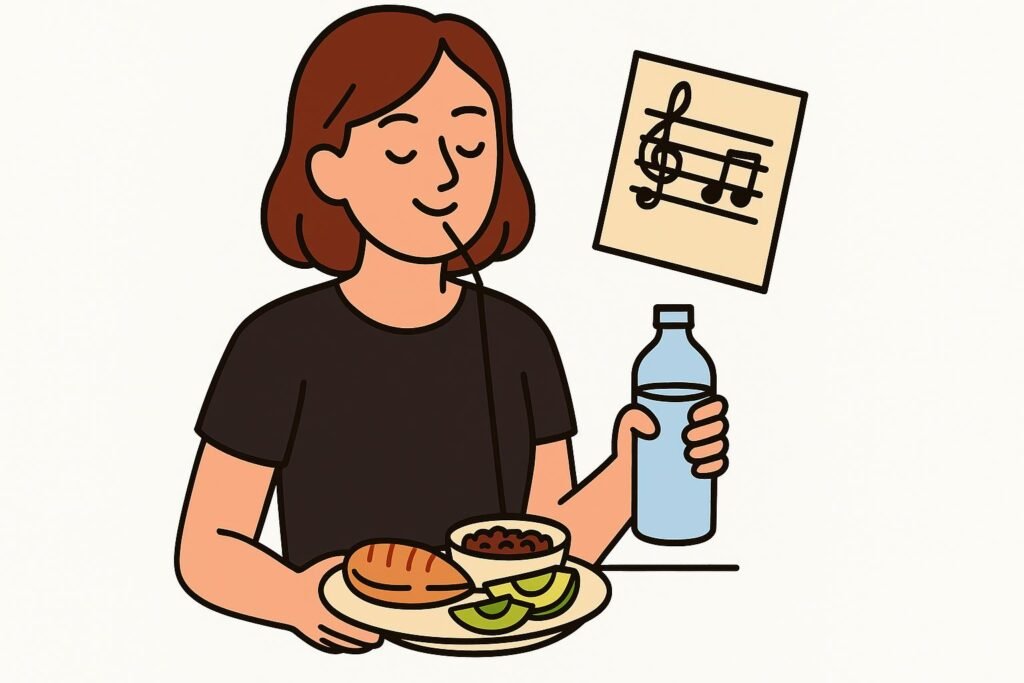When your voice is your instrument, what you put into your body directly affects your performance. Many singers know to avoid dairy or greasy food before a show—but fewer understand why certain foods help you feel more grounded and energized. The goal isn’t to eat for fullness—it’s to eat for calm, sustained energy that supports breath, posture, and vocal clarity.
The ideal pre-performance meal is a mix of complex carbs (like brown rice or sweet potatoes), lean protein (like chicken or legumes), and a small amount of healthy fat (like olive oil or avocado). This trio helps your blood sugar stay stable, which keeps you mentally sharp and physically steady. You also avoid the crash that can come from sugary or overly processed snacks.

Timing matters, too. You want to eat your main meal about 2–3 hours before singing, giving your body time to digest. If you’re tight on time, a smaller snack—like half a banana or a slice of whole grain toast with almond butter—30–60 minutes before can still make a big difference. Stay away from anything too heavy, spicy, or acidic, as these can lead to reflux or throat irritation.
Finally, don’t forget hydration—but space it out. Chugging water right before stepping on stage can lead to bloating and breathlessness. Sip throughout the day instead. With the right meal and timing, you’ll feel energized, focused, and ready to give your best performance.






